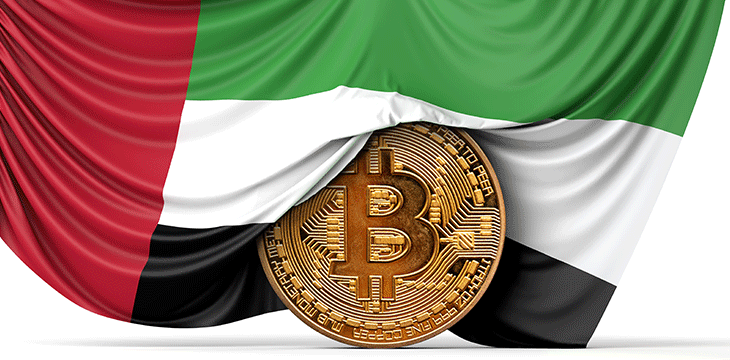The world of finance is undergoing a dramatic transformation, and one of the most exciting changes is the rise of digital currencies. Countries around the world are exploring the potential of cryptocurrencies and digital tokens as the future of money. However, the UAE is taking bold steps ahead, positioning itself as one of the leaders in the digital currency space.
In this article, we will explore the UAE’s efforts in embracing digital currencies, the opportunities they bring to businesses and individuals, and how these innovations are shaping the future of finance in the region.

1. The UAE’s Vision for a Digital Economy
The UAE is no stranger to innovation and technological advancement. Over the years, the country has worked hard to position itself as a global leader in technology and finance. The rise of digital currencies fits into this broader vision of building a smart economy—an economy driven by digital solutions, innovation, and financial technology (FinTech).

In 2020, the UAE’s Central Bank announced its commitment to explore and understand the future of digital currencies, especially central bank digital currencies (CBDCs). The government has continuously supported the growth of digital platforms and has invested in technologies that could eventually make the UAE a leading digital economy.
In addition, the UAE government launched its UAE Blockchain Strategy 2021, which set a clear roadmap for the implementation of blockchain technology and digital currencies across various sectors. This ambitious initiative aims to reduce costs, enhance transparency, and improve the overall efficiency of government processes, making it easier for businesses to interact with the government and with each other in the future.

2. The Role of Cryptocurrency in the UAE
Cryptocurrency has been the most widely known form of digital currency over the last decade. While many countries were initially hesitant or critical about cryptocurrencies, the UAE has embraced them with open arms. Cities like Dubai and Abu Dhabi are home to thriving cryptocurrency communities, with a growing number of businesses and individuals investing in digital assets like Bitcoin, Ethereum, and other altcoins.
Dubai’s Crypto Valley—a global hub for cryptocurrency and blockchain technology—has become an attractive location for cryptocurrency exchanges, blockchain developers, and digital asset investors. In fact, Dubai’s Dubai Multi Commodities Centre (DMCC) has created a specific Crypto Centre to support the development and growth of the cryptocurrency industry in the region. The centre provides entrepreneurs with the tools they need to start and scale their digital currency businesses, as well as access to global markets.
Moreover, the UAE has enacted crypto-friendly regulations that provide a safe environment for investors and entrepreneurs to engage with digital currencies. The Securities and Commodities Authority (SCA) and other regulatory bodies have introduced clear guidelines to ensure that cryptocurrency trading is transparent, secure, and compliant with international standards. This regulatory clarity has helped foster confidence among investors, making the UAE an attractive destination for digital currency businesses.
3. Central Bank Digital Currencies (CBDCs) in the UAE
While cryptocurrencies like Bitcoin have gained popularity, central bank digital currencies (CBDCs) are quickly emerging as an important aspect of the global financial landscape. A CBDC is a digital form of a country’s official currency, issued and controlled by the central bank. These digital currencies have the potential to revolutionize payments, improve efficiency, and reduce costs.
The UAE has been actively exploring the use of CBDCs through initiatives such as the Aber Project, a collaboration between the UAE Central Bank and the Saudi Arabian Monetary Authority (SAMA). The Aber Project is focused on the cross-border use of digital currencies, exploring how CBDCs can be used for secure, fast, and cost-effective transactions between the two countries.
By introducing CBDCs, the UAE aims to improve the efficiency of its payment systems, increase financial inclusion, and make cross-border transactions faster and cheaper. This will also allow the country to strengthen its position as a global financial hub, attracting more international businesses and investments.
4. The Growing Role of Blockchain Technology
Blockchain technology is the underlying infrastructure that supports most digital currencies. Its decentralized and transparent nature makes it highly secure and efficient, which is why it is increasingly being adopted across various industries.
The UAE government has recognized the immense potential of blockchain and has already integrated it into various government services. For example, Dubai has become a pioneer in using blockchain for smart contracts and government transactions. The city aims to be the world’s first blockchain-powered government, with all government documents and services eventually being stored and managed on blockchain platforms.
Beyond government services, blockchain is also playing a crucial role in the financial sector. Many banks and financial institutions in the UAE are already using blockchain to enhance the efficiency of their operations, reduce fraud, and improve transparency in transactions. Additionally, businesses are exploring the potential of blockchain for supply chain management, real estate, and identity verification, further driving the country’s digital economy.
5. Digital Payments and E-Wallets in the UAE
As digital currencies continue to grow in popularity, so too does the use of digital payment systems. The UAE has already established itself as a leader in the use of digital payments, with residents increasingly adopting mobile wallets and contactless payment options.
One of the most popular payment platforms in the UAE is Apple Pay, which has gained significant traction among consumers due to its convenience and ease of use. Additionally, the UAE Central Bank has launched its own initiative to promote digital payments, aiming to reduce the use of cash and improve the overall efficiency of the country’s payment system.
As more individuals and businesses embrace digital payments, the rise of digital currencies is expected to accelerate. In the coming years, digital currencies may be integrated into payment platforms, allowing users to make secure and efficient transactions with digital assets.
6. Financial Inclusion and the Future of Digital Currency
One of the most significant benefits of digital currencies is their ability to promote financial inclusion. Digital currencies provide people without access to traditional banking services the ability to store, transfer, and invest money. In a region like the UAE, which has a diverse population of expats and migrant workers, the rise of digital currencies offers an opportunity to bridge the financial gap for underserved communities.
The UAE is also looking to improve access to digital financial services for people who are not well-versed in traditional banking methods. The government is working on expanding digital literacy programs to ensure that everyone, regardless of their background, can take part in the digital economy.
7. The Future of Digital Currency in the UAE
As the UAE continues to embrace digital currencies, the future looks bright for the country’s financial landscape. With its forward-thinking regulations, commitment to innovation, and focus on financial inclusion, the UAE is well-positioned to lead the charge in the global digital currency revolution.
The next few years will likely see even greater adoption of digital currencies, with more businesses accepting cryptocurrencies as payment, expansion of blockchain services, and the potential for digital currencies to become a mainstream method of exchange. Dubai and Abu Dhabi will continue to play key roles in this transformation, with the government’s support and investments helping to drive the growth of the digital economy.
Also read: UAE’s Sustainable Energy Projects: Paving the Way for a Greener Future












